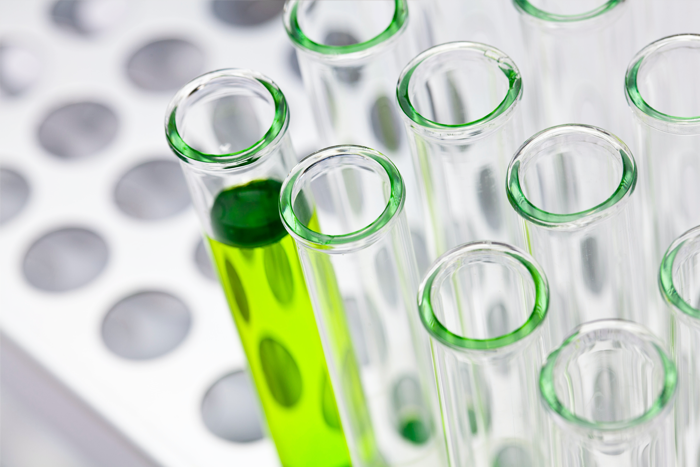Cystinuria Research
There is always research being done to improve the treatment and lives of those with Cystinuria. Here is a list of the ones we know about at the moment.
Join the Cystinuria Registry
The International Cystinuria Registry is now operational. Participation of patients will help physicians and scientists learn more about this rare disease, and help design new treatments. To learn more about the Cystinuria registry at New York University, please send an e-mail to cystinuria@nyumc.org or visit the official registry site at New York University.
Visit Their Website
Ongoing Research
The Effect of Sodium-glucose Cotransporter (SGLT) 2 Inhibitors on Cystine Stone Formation: A Preliminary Study
Cystinuria is an inherited autosomal recessive disorder of the kidney that is the result of an inability to reabsorb cystine from the urine. Supersaturation of cystine in the urine produces crystals that precipitate and form stones in the kidney, which can be a cause of obstruction, infection, and chronic kidney disease. Cystine stones constitute a major health challenge for affected individuals with cystinuria because of the frequent recurrence of painful symptoms and the current absence of effective, patient-accepting treatment.
Study Informatoin
Long Term Clinical Efficacy of Sodium-glucose Cotransporter-2 (SGLT-2) Inhibitor in Cystinurics
Cystinuria is an inherited autosomal recessive disorder of the kidney that is the result of an inability to reabsorb dibasic amino acids, including cystine, from the urine. Supersaturation of cystine in the urine produces crystals that precipitate and form stones in the kidney, which can be a cause of obstruction, infection, and chronic kidney disease. Cystine stones constitute a major health challenge for affected individuals with cystinuria because of the frequent recurrence of painful symptoms and the current absence of effective, patient-accepting treatment.
Study Information
Evaluating Patients With Cystinuria
This is an open label, multicentre study, evaluating the safety, tolerability, efficacy, compliance and acceptability of alkalising treatments at long-term in patients with cystinuria.
Study Information (Recruiting now)
Evaluating Patients With Cystinuria and Efficacy and Safety Exploratory Study in the Youngest Children
This is a multicentre, randomized, controlled versus placebo, double-blinded, 4 parallel arms, dose-ranging main study, to evaluate the efficacy, safety and tolerability and acceptability of repeated doses of ADV7103, after 7 days of treatment, in patients with cystinuria, and an efficacy and safety exploratory study in the youngest children.
Study Information (Recruiting now)
Lipoic Acid Supplement for Cystine Stone
This study evaluates how daily alpha lipoic acid supplementation affects cystine kidney stone recurrence. Half of the subjects will receive 1200 mg alpha lipoic acid orally daily for three years, while the other half will receive a placebo. The funding source for this clinical trial is FDA OOPD.
Study Information

Effect of Urine Alkalinazation on Urinary Inflammatory Markers
It has recently been described the presence of a urinary inflammatory signature in patients with cystinuria, the most common cause of renal lithiasis of genetical origin. These data are very innovative in this pathology but deserve further studies to establish the specificity of this inflammatory signature in patients with cystinuria compared to other nephropathies and other renal lithiasis diseases. Moreover, the effect of the usual treatment of cystinuria (namely urine alkalanization) on urinary inflammatory biomarkers deserves to be tested.
Study Information (Recruiting now)
Rare Kidney Stone Consortium Biobank
This study is being done to obtain samples from patients with primary hyperoxaluria, cystinuria, adenine phosphoribosyl transferase (APRT) deficiency, and Dent disease, and from their family members, for use in future research.
Study Information (Recruiting now)
Rare Kidney Stone Consortium Patient Registry
The purpose of this study is to collect medical information from a large number of patients in many areas of the world with primary hyperoxaluria (PH), Dent disease, Cystinuria and APRT deficiency. This information will create a registry that will help us to compare similarities and differences in patients and their symptoms. The more patients we are able to enter into the registry, the more we will be able to understand the Primary Hyperoxalurias, Dent disease, cystinuria and APRT and learn better ways of caring for patients with these diseases.
Study Information (Recruiting now)
Health-related Quality of Life in Rare Kidney Stone
Assessment of Health-related Quality of Life in Rare Kidney Stone Formers in the Rare Kidney Stone Consortium.
Study Information (Recruiting now)
Prospective Research Rare Kidney Stones (ProRKS) (ProRKS)
The purpose of this study is to determine the natural history of the hereditary forms of nephrolithiasis and chronic kidney disease (CKD), primary hyperoxaluria (PH), cystinuria, Dent disease and adenine phosphoribosyltransferase deficiency (APRTd) and acquired enteric hyperoxaluria (EH). The investigator will measure blood and urinary markers of inflammation and determine relationship to the disease course. Cross-comparisons among the disorders will allow us to better evaluate mechanisms of renal dysfunction in these disorders.
Study Information (Recruiting now)
